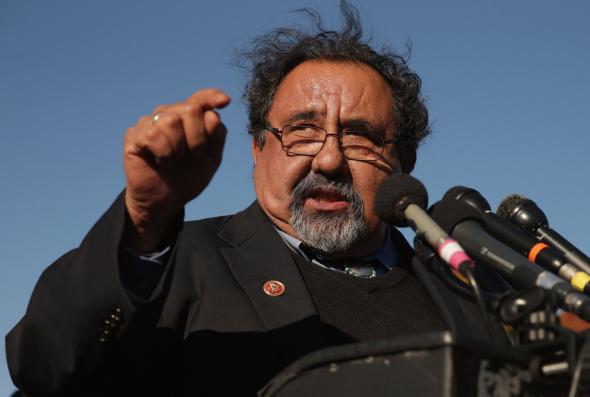Rep. Raul Grijalva, the ranking Democrat on the House Natural Resources Committee, wants to know whether money from the energy sector might be influencing scientists who come before Congress to deny climate change. Since asking that question, Grijalva has been accused by fellow lawmakers, and some scientists, of perpetrating a “witch hunt” that could have a “chilling effect” on scientific exploration.
Rep. Grijalva’s questioning comes after a lengthy article in the New York Times last month detailed the source of research funds used by Wei-Hock Soon, an aerospace engineer who has testified in several congressional hearings to express doubt that climate change can be attributed to human activity. Soon, who is affiliated with a joint venture of Harvard and the Smithsonian, is responsible for bringing in research dollars to pay his salary and fund his projects. The Times revealed he has received more than $1.2 million from the fossil-fuel industry over the past decade, including at least $230,000 from the Charles G. Koch Charitable Foundation. (As the Times notes, part of Koch’s fortune comes from oil refining.)
Grijalva sent letters last week to universities that employ some of the scientists who remain skeptical about the causes of climate change, asking about the sources of their research funds. This sparked accusations of intimidation from the other side of the aisle. Eleven Republican senators, led by James Inhofe of Oklahoma, sent a letter of their own to academic institutions, expressing concern that Grijalva was out to “silence legitimate academic and scientific inquiry.”
The controversy recalls another political dustup over climate change research, when Virginia’s then–attorney general, Republican Ken Cuccinelli, demanded in 2010 that the University of Virginia turn over emails and other documents related to researcher Michael Mann, in an effort to show that Mann had fabricated evidence that human activity had contributed to climate change. A court later ruled that Cuccinelli lacked the authority to compel the university to turn over Mann’s papers.
Politico notes that several conservative commentators now criticizing Grijalva trumpeted Cuccinelli’s probe into Mann’s academic work as a “thorough investigation by someone not in cahoots with the climate mob.”
